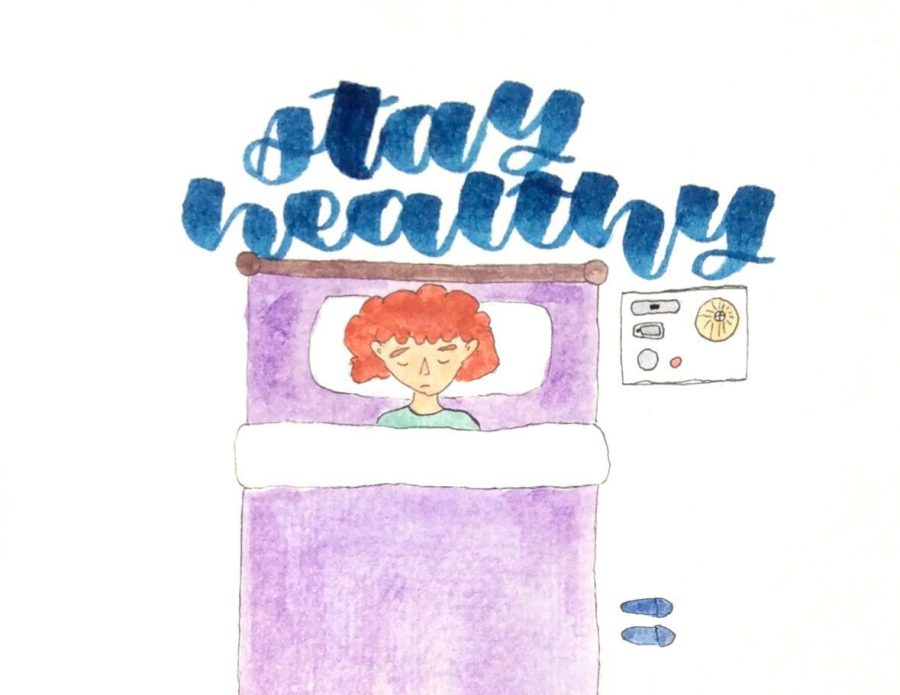Staying Healthy During Flu Season
October 30, 2017
As high school students who are already burdened with schoolwork and extracurriculars, we simply do not have time for illness. Unfortunately for us, October and November generally mark the start of the dreaded flu season. Thankfully, there are plenty of preventative measures you can take so that you and those around you can stay healthy.
1. Wash your hands frequently. Most of us have probably been hearing this since who knows when, but it can’t be more important during flu season. Be sure to wash your hands with soap and running water for at least 20 seconds (or the time it takes to sing “Happy Birthday” twice). If soap and water are not available, use an alcohol-based hand sanitizer that contains at least 60% of alcohol.
2. Cover your mouth and nose when you sneeze or cough, preferably with a tissue. If there isn’t a tissue box near you, use your elbow or arm. Do not use your hands; if you do, wash them promptly afterwards. This will prevent you from touching and contaminating shared objects that could possibly infect others.
3. Avoid touching your eyes, nose, or mouth. Viruses often spread when people touch something contaminated, then touch their eyes, nose, or mouth. Try to clean objects that you or others touch frequently, such as doorknobs, keyboards, or your phone.
4. Stay hydrated – preferably with warm liquids. Don’t forget to drink water even if you don’t feel thirsty. Increasing your water intake will keep you healthy and lessen your chances of getting sick.
5. Get a good night’s sleep. Lack of sleep may inhibit your immune system because your body secretes cytokines while you sleep, which are chemicals that regulate immune function. Your body repairs itself while you sleep, so try to go to sleep early or aim for eight hours of sleep.
6. Avoid contact with people who are sick. This is common sense. Steer clear of their sneezes and coughs, and if possible, avoid shaking hands with ill people. Be sure to minimize proximity to their faces.
7. Stay home if you are sick. Just as you’d avoid people who are sick, you should also minimize contact with healthy people when you’re not well. You won’t infect others if you don’t come in contact with them. A general guideline is to stay home for 24 hours after your fever resolves.
Graphic courtesy by JOCELYN THAO

